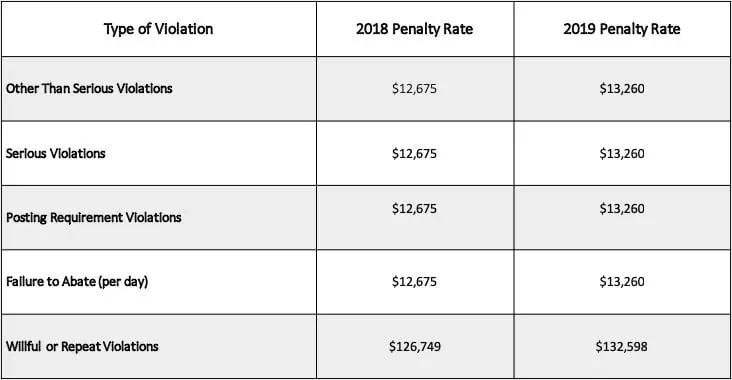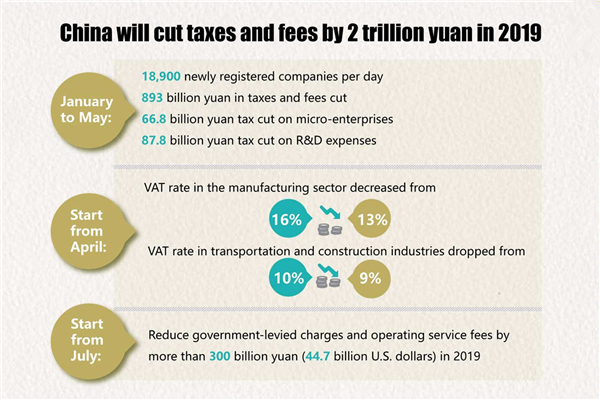Penalty rate laws are poised to significantly impact the Australian workforce and its associated industries, particularly in the retail sector. These new regulations will prevent businesses from negotiating arrangements that allow employees to trade penalty rates for higher base salaries, a measure that could have led to increased take-home pay for many workers. Introduced by the Labor government, this legislation represents a shift towards stricter employment frameworks that may undermine the flexibility previously granted by the Fair Work Commission. Employment Minister Amanda Rishworth has cited fairness and equality as driving forces behind these changes, but critics argue that they may inhibit businesses’ ability to adapt and thrive in a competitive landscape. As the retail industry grapples with the complexities of the existing 994-rate retail award system, the implications of these laws could ripple through the economy, affecting both productivity and employee satisfaction.
The recent introduction of laws governing penalty rates represents a crucial development in employment relations across Australia. These regulations, often referred to as penalty rate protections, ban the idea of integrating penalty rates into employees’ base wages, which some argue could simplify pay structures. As the Labor government seeks to reshape the landscape of workplace agreements, stakeholders are left to navigate a more rigid retail award system that comprises numerous pay rates. Critics point to the implications for workplace flexibility and the potential strain on business operations as they adapt to new regulatory burdens. Understanding the full extent of these laws is vital for employers aiming to maintain productivity and satisfaction amid an evolving industrial relations framework.
Understanding the Impact of Labor’s Penalty Rate Laws on Business Flexibility
The recent introduction of penalty rate laws by the Labor government has significant implications for business flexibility across Australia. These amendments to the Fair Work Act restrict employers from negotiating penalty rates absorption into base salaries, even when such arrangements could favor the employees financially. This legislative change has been met with concern from business groups that argue it undermines the independence of the Fair Work Commission and exacerbates workplace rigidity at a time when adaptability is crucial for economic recovery.
With the retail sector particularly affected, businesses must now continue navigating the complex 994-rate retail award system. As the Australian Retailers Association highlights, this system not only complicates payroll compliance for businesses, especially smaller ones, but also limits their capacity to offer competitive employment packages. The inability to provide employees with the choice of higher base salaries in exchange for reduced penalty rates signifies a missed opportunity for enhancing both employee satisfaction and business efficiency.
The Role of the Fair Work Commission in a Changing Labor Landscape
The Fair Work Commission has traditionally played a crucial role in balancing the interests of employees and employers in Australia. However, with the passing of the new penalty rate laws, the Commission’s independence may come into question. By legislating against modernized salary structures proposed by businesses, the government is potentially stifling the innovative use of the retail award system, which aims to provide more straightforward and sustainable pay models that align with current workforce expectations.
As Employment Minister Amanda Rishworth stated, this legislative response aims to maintain worker protections amidst fairness issues raised in Fair Work Commission cases. Nonetheless, the dynamic nature of employment relations in Australia means that a rigid approach may not be suitable for all sectors. The need for adaptability in employment structures reflects not only the evolving landscape of labor rights but also an urgent need to align legislative actions with the operational realities of businesses striving for growth and efficiency.
Legislative Changes and Small Business Compliance Challenges
With the introduction of new penalty rate laws, small businesses face an uphill battle in compliance. The Australian Retailers Association emphasizes that the complexity of the retail award system, particularly with its 994 rates, creates burdens that disproportionately affect smaller operators. These businesses already struggle with navigating regulatory requirements, and the additional constraints posed by the new legislation put them at a further disadvantage against larger competitors who may have greater resources for compliance.
Moreover, as the Implications of Labor’s actions raise concerns, small to medium-sized businesses that had begun exploring simplified pay structures now must prepare to withdraw or face rejection of their applications to the Fair Work Commission. This sudden shift not only resets their payroll strategies but also instigates a broader conversation about how legislative measures can inadvertently stifle innovative business practices, thereby negatively impacting employment opportunities and economic growth.
Business Responses to the New Fair Work Act Amendments
The business community’s reaction to the amendments to the Fair Work Act reflects a deep concern about the trajectory of Australia’s industrial relations policy. Leaders from the Australian Retailers Association have voiced their frustration, arguing that the changes not only conflict with productivity objectives but also undermine the government’s purported goals for a more flexible economy. The legislation, viewed as government overreach, contrasts sharply with the proposals for enhanced employee earnings through simplified salary structures.
This disconnect between government intentions and industry needs raises critical questions about the effectiveness of the new policies in fostering economic resilience. Business leaders contend that instead of empowering them to adapt to the rapidly changing economic landscape, these laws inhibit the agility needed to respond to market fluctuations effectively. As the conversation around productivity continues, it remains pivotal for both the Labor government and business groups to engage collaboratively to create a more supportive environment for growth.
Forecasting the Future of Employment Relations in Australia
As the Labor government’s new penalty rate laws are likely to pass with the support of the Greens, businesses must brace themselves for an evolving industrial relations climate. The current trajectory hints at an ongoing struggle between collective bargaining ideals and the need for individual workplace flexibility. The commitment to maintaining traditional award structures prioritizes union interests, which could stymy innovation and adaptability in employment arrangements essential for a modern workforce.
Employers might find themselves facing increased costs and administrative burdens as they grapple with the complexities of the award system. This scenario paints a concerning picture of the future, where industrial relations may hinder rather than support entrepreneurship and business growth. Addressing this imbalance is critical for enhancing productivity and ensuring that businesses can thrive amidst legislative constraints while effectively adapting to the realities of the contemporary labor environment.
The Australian Retail Sector’s Challenges Under New Laws
The retail sector, a significant contributor to the Australian economy, faces distinct hurdles under the new penalty rate laws. The legislation directly conflicts with current attempts by retail employers to modernize pay structures, which had been aimed at creating more predictable salary arrangements for workers. This issue is particularly pressing given the industry’s reliance on flexible payment options to attract and retain talent amidst a competitive job market.
As the Australian Retailers Association points out, the intricacy of existing pay scales greatly complicates compliance for smaller enterprises. The government’s prohibition on absorbing penalty rates into base salaries means that these businesses may need to navigate a more cumbersome payroll system, ultimately impacting their ability to remain competitive. For the retail sector, these regulatory changes underscore the need for a reevaluation of how labor laws can support rather than hinder, the operational demands of businesses.
Union Dynamics and Penalty Rate Legislation
The introduction of new penalty rate laws also highlights the ongoing tensions between unions and business interests in Australia. Labor’s adherence to collective bargaining principles indicates a strong reliance on union recommendations to shape employment policies. This trend raises concerns among business leaders regarding the balance of power in negotiations. While unions advocate for workers’ rights and protections, their influence may inadvertently curtail the flexibility that many employers need to adjust pay structures appropriately.
As the industrial relations landscape evolves, the relationship between unions and businesses will be pivotal. Employers will need to navigate these dynamics carefully, advocating for their interests while also addressing valid employee concerns. The challenge will lie in finding a middle ground where employees can benefit from protections without undermining the operational agility that businesses require to survive and prosper in a challenging economic landscape.
The Role of Business Advocacy Groups in Shaping Policy
Business advocacy groups such as the Australian Retailers Association play a crucial role in influencing labor policy and advocating for the interests of employers. As they challenge the recent penalty rate laws, these organizations strive to articulate a vision for a more flexible and productive working environment. Their position emphasizes the need for reform that prioritizes not only workers’ rights but also the necessity for businesses to adapt quickly to changing market conditions.
These groups serve as a vital link between the business community and policymakers, pushing for legislation that recognizes the realities of the contemporary economic landscape. By underscoring the potential downsides of rigid labor laws, advocacy organizations aim to prompt discussions around the need for a supportive framework that encourages investment and innovation. As legislators craft future policies, the input from these groups will be essential in navigating the complexities of employment relations in Australia.
Strategies for Navigating Labor Compliance Amidst New Regulations
In light of the recent amendments associated with penalty rate laws, businesses will need to adopt strategic approaches to ensure compliance while mitigating operational disruptions. Understanding the implications of these laws requires a thorough review of existing payroll systems and workforce management practices, particularly for those businesses reliant on flexible pay structures. Adjusting to these regulations will demand proactive engagement with legal and compliance experts to navigate the intricacies of the Fair Work Act.
Moreover, investing in training and resources for human resource teams can enhance understanding of the new legislation, fostering a culture that prioritizes compliance and ethical employment practices. Businesses should also explore communication strategies that articulate these changes to employees, ensuring transparency while also providing clarity on how compensation structures will evolve under the new laws. This proactive stance will be vital in maintaining employee trust and operational continuity.
Frequently Asked Questions
What are the new penalty rate laws introduced by the Labor government regarding business flexibility?
The Labor government has introduced new penalty rate laws that prohibit Australian businesses from negotiating with employees to absorb penalty rates into their base salaries, which could have simplified the existing complex retail award system under the Fair Work Commission. This legislation aims to prevent arrangements that may allow workers to opt for higher salaries instead of traditional penalty rates.
How do the new penalty rate laws affect the Fair Work Commission’s role?
The new legislation undermines the independence of the Fair Work Commission by restricting its capacity to approve agreements that modernize pay structures, particularly in the retail industry. This intervention prevents businesses from presenting proposals for salary arrangements that could benefit both employers and employees by simplifying wage structures.
What impact will the penalty rate laws have on the retail sector and its employees?
The penalty rate laws significantly impact the retail sector, which is governed by complex awards featuring 994 different pay rates. Workers in this sector may miss out on potential financial benefits from higher base salaries that could replace traditional penalty rate structures, causing compliance challenges especially for smaller retailers.
Who is Employment Minister Amanda Rishworth and what is her stance on penalty rate laws?
Employment Minister Amanda Rishworth is a key figure in the Labor government, responsible for introducing legislation that restricts the absorption of penalty rates into base salaries. She supports these laws as a means to address past Fair Work Commission cases while promoting traditional pay structures over alternative arrangements that could enhance workplace flexibility.
What challenges do the new penalty rate laws create for small businesses in Australia?
The new penalty rate laws create additional challenges for small businesses by maintaining the complex retail award system that includes numerous pay rates. This flexibility restriction could lead to increased compliance burdens, costs, and a lack of innovative employment options, thereby impacting the overall productivity of these businesses.
Will the new penalty rate laws improve or hinder business productivity in Australia?
The introduction of the new penalty rate laws is viewed by many industry groups as a hindrance to business productivity. They argue that by limiting the ability to negotiate salary structures, these laws contradict the government’s goals of enhancing productivity while adding complexity and cost burdens for businesses.
What can businesses do in response to the new penalty rate laws?
In response to the new penalty rate laws, businesses, particularly in sectors like retail, may need to withdraw their applications for simplified pay structures with the Fair Work Commission and consider exploring enterprise bargaining options, despite the additional complexity and costs associated with such arrangements.
How does the opposition view Labor’s new penalty rate legislation?
Opposition leaders and industry groups have criticized Labor’s new penalty rate legislation, arguing it represents government overreach and undermines workplace flexibility. They believe it could stifle innovation and productivity improvements, worsening the challenges facing Australian businesses in a complex economic landscape.
| Key Points | Details |
|---|---|
| Government Legislation | The Labor government is introducing laws to prohibit penalty rate absorption into base salaries. |
| Impact on Businesses | Businesses can no longer negotiate penalty rates for base salaries, affecting payroll flexibility. |
| Complications for Retailers | The complexity of compliance with Australia’s 994 pay rate award system increases, particularly for small businesses. |
| Industry Reaction | The Australian Retailers Association sees this as government overreach, hindering productivity. |
| Strategic Implications | The laws indicate a commitment to collective bargaining over individual flexibility and may stifle innovation. |
Summary
Penalty Rate Laws are reshaping the landscape of workplace agreements in Australia. The recent legislation introduced by the Labor government prohibits the absorption of penalty rates into higher base salaries, hindering the flexibility businesses once had in structuring employee pay. As a result, this limits opportunities for workers to negotiate arrangements that may lead to greater financial security, especially for those in the retail sector who depend heavily on penalty rates. The complexities introduced by these laws not only burden small businesses with additional compliance challenges but also reflect a broader ideological shift that prioritizes collective bargaining at the expense of individual workplace flexibility. Ultimately, these changes could lead to a less adaptive industrial relations framework, impacting productivity and economic growth.



